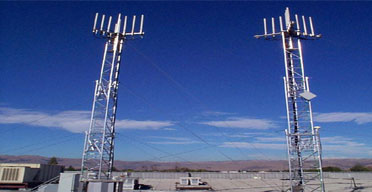NAIROBI, Dec 8 – As the mobile communication craze engulfs Kenya, new concepts pop up almost on a daily basis. With the usual marketing blitz, business people are left confused on how to maximize the benefits of emerging technologies.
WiFi is short form for Wireless Fidelity which is currently the most common technology for providing wireless networking services. WiMAX is the new wireless broadband that is succeeding WiFi. It has greater bandwidth and range capacity than WiFi.
On the other hand, 3G refers to the third generation protocols for mobile communication that support more than just voice messages. Compared to earlier protocols like 2G, 3G is more robust, fast and supports bandwidth-heavy activities such as Internet surfing, video transfer and teleconferencing, among others.
But what is the difference between WiMAX and 3G? The main difference is that WiMAX is designed for mobile computing; that is being able to utilize a mobile computing device while maintaining connectivity to a network. On the other hand, 3G is meant for cellular phones but enables users to transmit and receive data and video in real time on cellular networks.
At the moment, anyone using mobile WiMAX needs a portable computing device such as a laptop which has a WiMAX modem to get access. It is also important to note that WiMAX, at least for now, does not automatically roam. This means that if you lose connection with a specific tower, you would have to establish a fresh connection with another tower. However, 3G connection automatically switches from cell to cell enabling the users to roam freely. So, it is easier to surf the Internet using 3G while traveling in a vehicle than using WiMAX.
Industry gurus point out that there are no significant price differences between WiMAX and 3G. But they are quick to point out that WiMAX has higher bandwidth capacity than 3G. WiMAX also has a wider base station service range than 3G. These features may result in price differentiations which may be maximized in specific setups. For instance, WiMAX would have more benefits for rural settings than 3G.
All in all, these technologies are about offering more interconnection speed, power and convenience on the move which can facilitate real-time content collaboration, video conferencing as well as a wide spectrum of mobile business applications that enable business people to transact anywhere anytime.
One consequence of this technological battle is availability of options and all the benefits that come with it such as reduced costs of equipment and services; wide coverage; more customization to serve specific market niches; and ready accessibility. It is also expected that these battles will stimulate widespread adoption of mobile platforms as channels of business transactions. This will support the collaborative business model in which new and more profitable business ecosystems will emerge and thrive. The battle will also kindle expansion and globalization of markets.



































